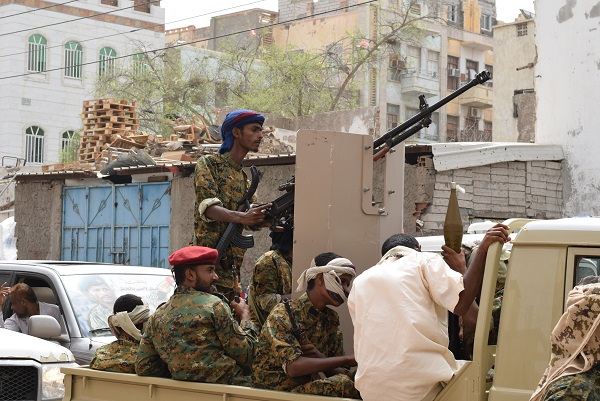Cairo, The Saudi-led coalition has called for a ceasefire between the forces of the internationally recognised government and southern separatists in the Yemeni port city of Aden after days of clashes that left dozens of civilians dead.
The coalition on Sunday threatened to use force if either of the warring parties violates the ceasefire, which the coalition decreed as of 1 am local time (10 pm GMT), Efe news reported.
The coalition conducted one bombing operation in northern Aden, locals told Efe, as a warning, but no more displays of strength were needed from the most powerful ally of the government of President Abd Rabbu Mansour Hadi.
However, efforts at the political level had to progress at full steam so that the ceasefire could be imposed and the situation moves back to the status quo that reigned before this week’s clashes.
During the recent fighting, the Southern Transitional Council separatists gained territory in Aden.
The STC confirmed in a statement its commitment to the ceasefire and welcomed an invitation to dialogue extended by Saudi Arabia.
Saudi Arabia summoned the warring parties for “an urgent meeting” to be held in the kingdom, although it did not reveal when it would take place.
The Yemeni government also hailed the coalition’s intervention, after what it called a “coup” against the Yemen institutions.
The internationally recognized government has been based in Aden since it was expelled from the capital by the Houthi rebels in 2014.
Hadi, in self-imposed exile in neighboring Saudi Arabia, met on Sunday with King Salman bin Abdulaziz Al Saud in the holy city of Mecca, where they discussed the latest occurrences in Aden, the Saudi state-run news agency SPA reported.
The king rejected the “coup against institutions” presided over by Hadi and expressed support for the “legitimacy and unity of Yemen, its stability and security.”
The UAE, Saudi Arabia’s main coalition ally, issued a brief statement on Saturday calling for an easing of tension and for dialogue.
The UAE has been under pressure for supporting the separatist militias in southern Yemen, which are part of the so-called Security Belt.
The eruption of violence in Aden exposed differences within the coalition, which in March 2015 launched a military intervention against the Houthi rebels.
The UAE’s goal is to reinforce the position of its allies, the separatists, before undettaking a gradual withdrawal of its troops from Yemen.
Officially, however, Abu Dhabi backs Hadi’s government and does not seek to oust him from power in the south.
In southern Yemen, the separatists have become stronger thanks to UAE support and the lack of government authority.
They have been supporting separatist claims that have existed since southern Yemen was annexed by the north in 1990 after a civil war.
The United Nations, meanwhile, called on both parties to allow humanitarian organizations to provide aid to civilians in need after locals have been trapped in their homes due to clashes that lasted for days.
At least 40 people have been killed and 260 others injured in Aden since the latest wave of violence started three days ago, the head of the UN diplomatic mission in Yemen, Lise Grande, said.
Despite the ceasefire, life in Aden’s streets has not returned to normal on Sunday with people staying indoors and the water supply being interrupted in some areas, locals told Efe.









